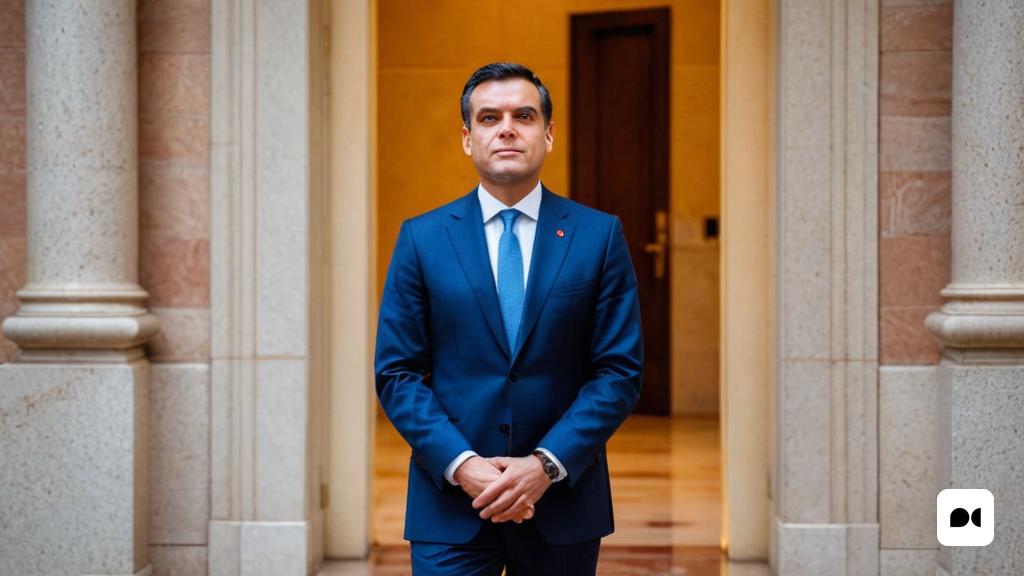Pedro Sánchez announces a democratic regeneration plan
Almost three months have passed since Pedro Sánchez, after spending five days at the Moncloa Palace with his family, announced his decision to continue leading the Spanish government. Various media had pointed out possible irregularities in Begoña Gómez’s business activity, which led the justice system to investigate her for alleged crimes of corruption and influence peddling. In his announcement, Sánchez, after referring affectionately to his wife, proclaimed his commitment to a ‘democratic regeneration’ in Spain. This week, the president presented a plan full of ambiguous proposals in the Congress of Deputies.
A plan that faces criticism from different sectors
The ideas presented by Sánchez have not only inflamed the opposition, but have also disappointed his partners. Both Junts per Catalunya and Esquerra Republicana have accused him of having double standards on issues such as lawfare and democratic quality in Spain. They accuse him of proposing this type of plan now that his wife is the media and judicial focus, after having stayed out of espionage cases, police infiltrations and imprisonments of dissident movements such as the independence movement.
Transparency demands for the media
In response to what he calls ‘pseudomedia’, Sánchez proposed in Congress to require media outlets to make public the names of their shareholders, the public financing they receive and their audience figures. This proposal was accompanied by an aid package of 100 million euros to support the digitalization of the media. In addition, he suggested increasing sanctions on deputies and senators who do not present their declarations of assets and activities, forcing candidates to debate and ensuring that population study centers publish the macro data with which they work to prepare their barometers.
Reflections on the gag law and the democratization of the state
Pedro Sánchez barely mentioned the gag law, briefly suggesting the idea of ’reforming’ it. There have been no signs from the government of wanting to address measures for a deep democratisation of the state. Sources from the government have admitted that the democratisation of the judicial apparatus, the reform of the law on official secrets or the transparency of the CNI are not contemplated. For now, these issues remain up in the air.
The criticisms of Gabriel Rufián and Míriam Nogueras
In Wednesday’s debate, Gabriel Rufián reproached Pedro Sánchez for describing Spain as ‘a full democracy’ when several parliamentary groups questioned him about the impunity of extremists in the streets, lies on television and impunity for war. judicial. Rufián rhetorically asked how it is possible that a full democracy needs a democratic regeneration plan. He assured that the democratic deficiencies in Spain begin with one judge imprisoning nine people for a referendum and end with another judge investigating his wife for a meeting.
Later, Míriam Nogueras pointed out the same inconsistency of the Spanish president. He commented that ‘no one regenerates something that already works’ and criticized that the PSOE until recently presented Spain as an exemplary democracy. Nogueras recalled how, while the independentistas provided evidence of espionage and infiltrations, they were accused of exaggerating. He also did not forget to mention article 155, which also had the support of the socialists.
The case of Begoña Gómez: uncertainty and lack of guarantees
The focus of the week once again focused on Begoña Gómez. Sánchez’s democratic regeneration plan was born with his wife at the center of the scandal. This Friday, she was summoned to testify before the judge, but she decided to avail herself of her right not to testify, alleging the lack of guarantees in the process.
Gómez’s lawyer, former minister Antonio Camacho, declared that his client ‘has nothing to hide’, but was advised to remain silent due to the lack of procedural guarantees. He accused Judge Juan Carlos Peinado of expanding the investigation beyond what was reasonable. According to Camacho, ‘the procedure has been left without content’ because ‘an instructor cannot investigate anything.’
The judge has acknowledged that he is investigating all of Begoña Gómez’s actions since Pedro Sánchez has been president, in relation to complaints filed by far-right organizations. Recently, Vox announced that it will request Pedro Sánchez to testify in this case.

